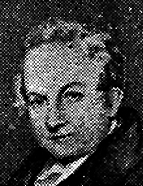

João Paulo Ascenso Pereira da Silva Capistrano de Abreu's intellectual life and work were marked by two clear development phases. From his youth until 1883, when he defended his thesis, his preference was decidedly scientific . Like many of his generation, he rejected the romantic aesthetics and eclectic philosophy that had dominated Brazilian cultural life until the late 1860s, he engaged with positivism, particularly the work of Littré, as well as the writings of Taine, Buckle, Haeckel, and Spencer. He would adopt Spencer’s version of evolutionism, especially in his work on O descobrimento do Brasil e seu desenvolvimento no século XVI. Unlike many of his contemporaries, Capistrano did not adhere to any specific doctrine. Instead, he aimed to apply multiple approaches based on the questions he was addressing at the time. This methodological eclecticism surprised many and critic Valentim Magalhães even accused him of engaging in "polygamy or polyandry of ideas". For this reason, it's more accurate to view him as a proponent of s cientifics , as he accepted the epistemological assumptions of the doctrines regarded as scientific at the time. This included beliefs in the Newtonian common root, the pursuit of natural laws, the objectivity of scientific knowledge, and the reduction of individual and social behaviour to biological and physical categories. Grounded in this common foundation, the methodological differences stemming from various perspectives, such as positivism and evolutionism, did not interest him, as he never conformed to the limitations of any single doctrine, nor did he become a sectarian supporter of any of them. During this phase, his primary focus, as expressed in an 1874 work on "contemporary Brazilian literature", was to identify certain "fundamental laws" of Brazilian formation that would explain the development of the country's society and culture, which he perceived as reacting to the conditions of the physical and social environment. This attitude would lead to a certain degree of marginalization in an environment where intellectual life was centred around a "republic of letters" and doctrinal hubs that occasionally identified themselves as "schools" or even "sects." Despite the brilliance that Valentim Magalhães recognized in him, it reflected a broader sense of estrangement that accompanied Capistrano de Abreu's social reception throughout his life.
This work is financed by national funds through FCT - Foundation for Science and Technology, I.P, in the scope of the projects UIDB/04311/2020 and UIDP/04311/2020.
